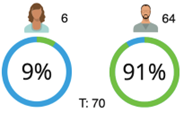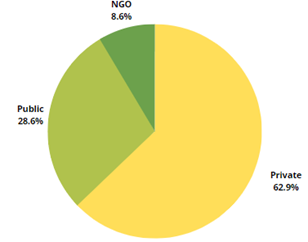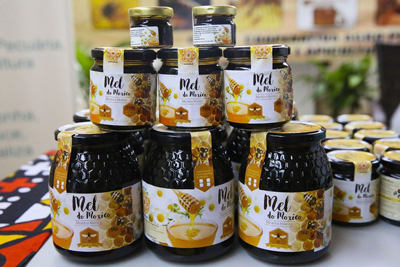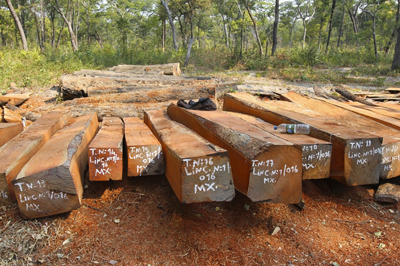Results
Training participants segregated by gender / Participantes de formação segregados por género

Training participants segregated by sector / Participantes de formação segregados por sector

 As part of the EU-UNCTAD joint programme for Angola (Train for Trade II), and in support of Angola’s efforts to strengthen and diversify its economy towards more sustainable products, UNCTAD is organizing a second training event under its National Green Export Review process in the country. The training workshop, which will run full time between 17-21 June 2019, focuses on two specific products highlighted in the first NGER training which took place in 2018: honey and timber.
As part of the EU-UNCTAD joint programme for Angola (Train for Trade II), and in support of Angola’s efforts to strengthen and diversify its economy towards more sustainable products, UNCTAD is organizing a second training event under its National Green Export Review process in the country. The training workshop, which will run full time between 17-21 June 2019, focuses on two specific products highlighted in the first NGER training which took place in 2018: honey and timber.
Honey in Angola is primarily a natural product, considered intrinsically green, and is part of the list of products selected by the executive, through DP 40/16 of February 24 (Master Lines of Strategy to exit the crisis derived from the drop in the price of oil in the international market). Honey has a national market, including high-value niches like natural medicine, and large export potential in the SADC region, as well as markets in Europe, Asia and the United States. The potential of the honey sector development in Angola received additional interest from the representations of France and EU in Luanda – potential export markets – especially if harmonization and certification issues are addressed.
The honey sector lacks specific legislation, means of financing and faces logistics problems, such as dependence on the import of containers, low adoption of certification and extensive informality.
 In the case of timber, the product is specifically mentioned in the National Development Plan (PND 2018-2022 pages 75 & 157). The forested area in Angola is estimated at 53 million hectares. Timber is currently extracted and exported primarily in logs (with low added value), and the emergence of a clusters industry can add value to the sector. High financing costs, costly phytosanitary regulations and difficulties in accessing modern extraction and processing equipment increase costs in the timber sector in Angola. In environmental terms, it is important to reduce pressure on natural forests by promoting incentives for the creation of planted forests and conservation of ecosystems.
In the case of timber, the product is specifically mentioned in the National Development Plan (PND 2018-2022 pages 75 & 157). The forested area in Angola is estimated at 53 million hectares. Timber is currently extracted and exported primarily in logs (with low added value), and the emergence of a clusters industry can add value to the sector. High financing costs, costly phytosanitary regulations and difficulties in accessing modern extraction and processing equipment increase costs in the timber sector in Angola. In environmental terms, it is important to reduce pressure on natural forests by promoting incentives for the creation of planted forests and conservation of ecosystems.
Under this background and listening to suggestions from Angola’s Ministry of Commerce (MINCO), local associations, as well as 2018’s NGER workshop stakeholders, UNCTAD will now hold a provincial workshop where honey and timber production is most concentrated, the province of Moxico, especially its capital, Luena.
Goals
The provincial NGER training in Luena, Moxico province, will have two goals:
- Train provincial officials, members of associations, producers and local civil society to increase the capacity for analysis of national policies for the promotion and development of Honey and Timber, including harmonization and product certification issues.
- Transfer cross-cutting knowledge on green product promotion, certification and export processes for Honey and Timber, including members of local public, private and civil society institutions.
Background
The National Green Export Review initiative developed by UNCTAD has helped more than 10 countries since its inception in 2012. In Angola, an intensive, 2-week training workshop in June 2018 benefited more than two dozen government officials, industry managers and academics on methods to identify products that, unlike oil, could deliver positive environmental and social gains as production grows. The training also examined the domestic and export market characteristics of alternative products, in order to help practitioners understand the national competitive strengths and how to best develop them.
In connection to the 2018 training, a set of training materials were produced and published – in English and Portuguese – by UNCTAD. Furthermore, targeted study tours were made to strengthen Angolan connections to major pan-African and international events which can serve to further empower local stakeholders with knowledge and contacts to trade internationally.
The National Green Export Review of Angola is an ongoing training project and will continue until 2021.








